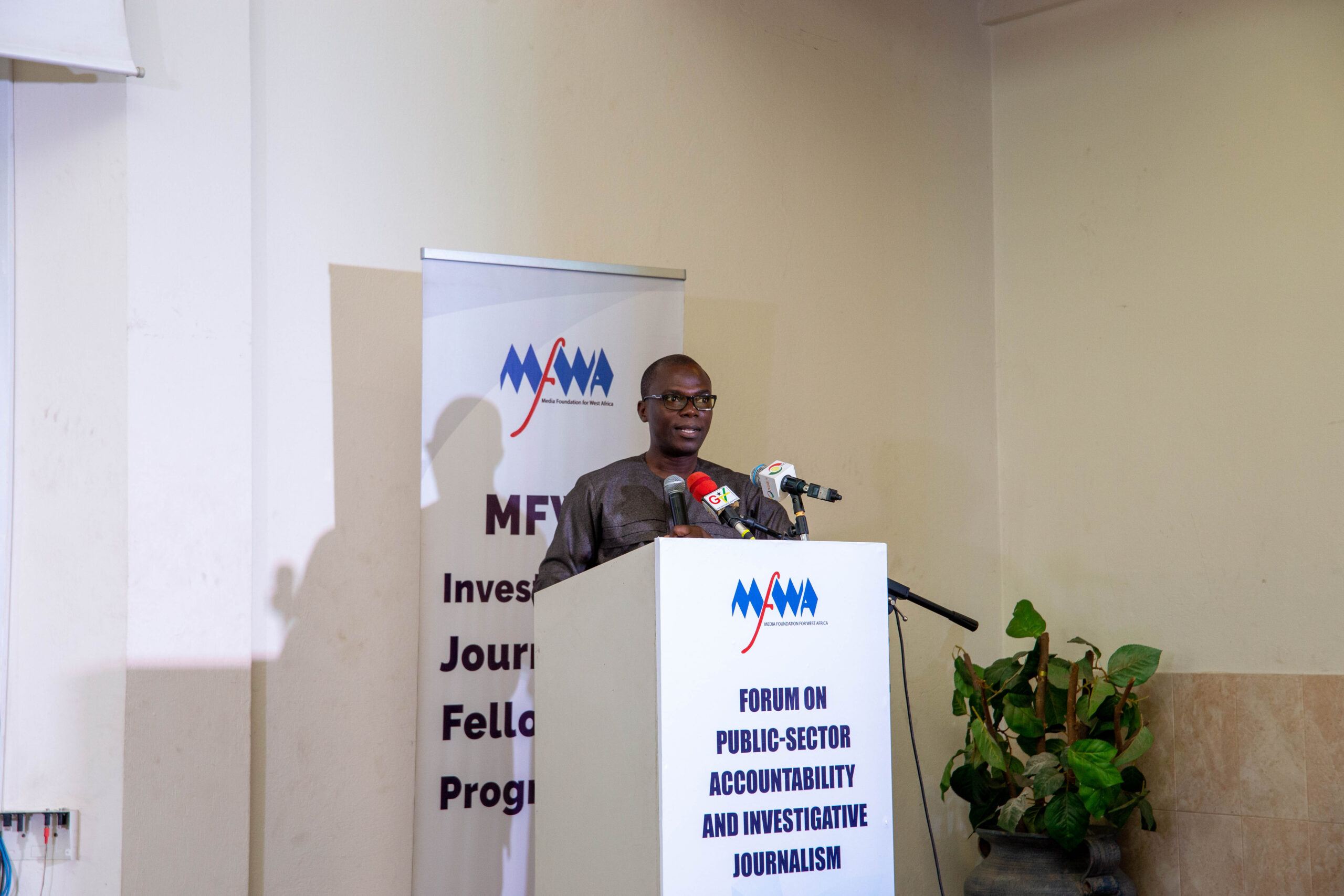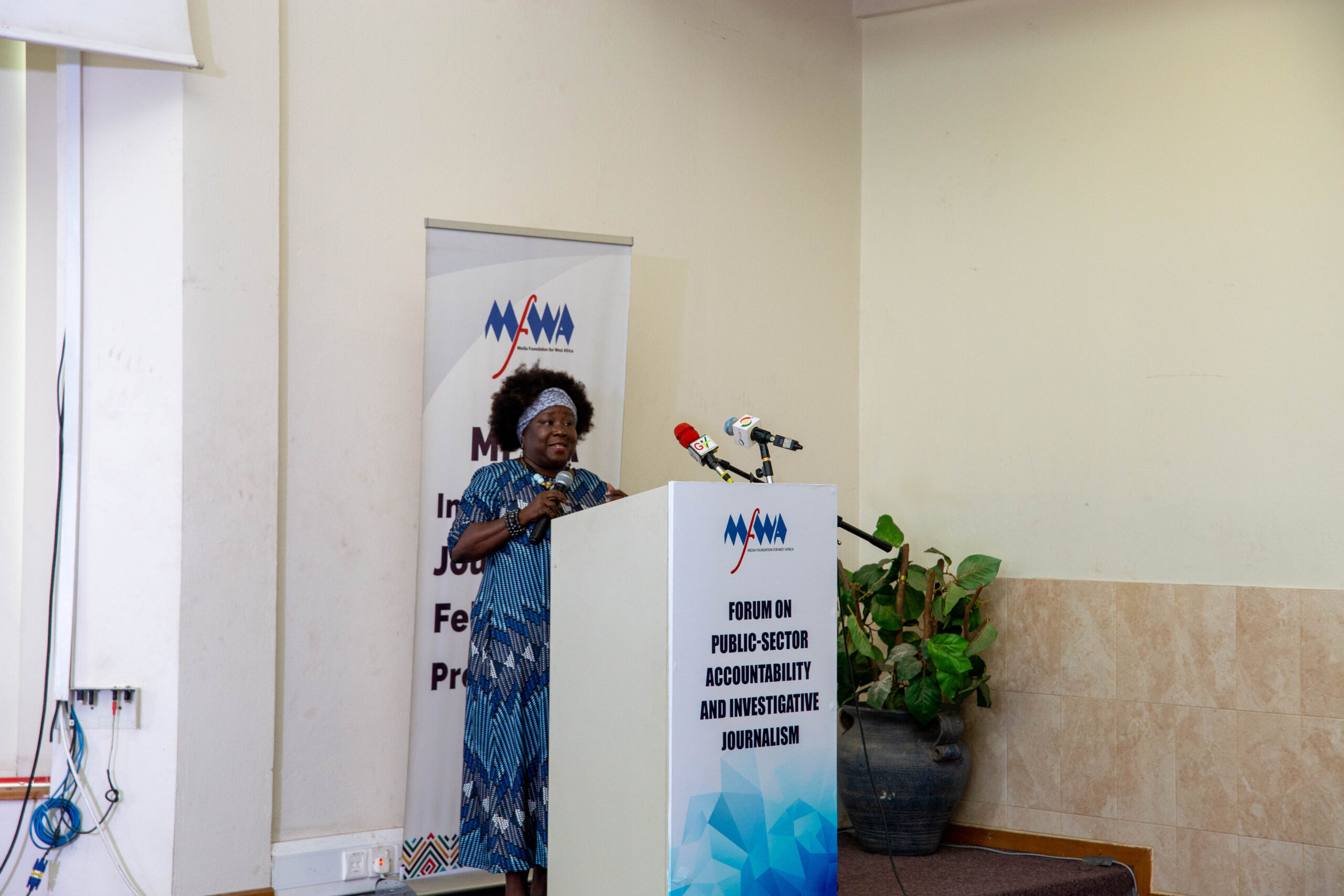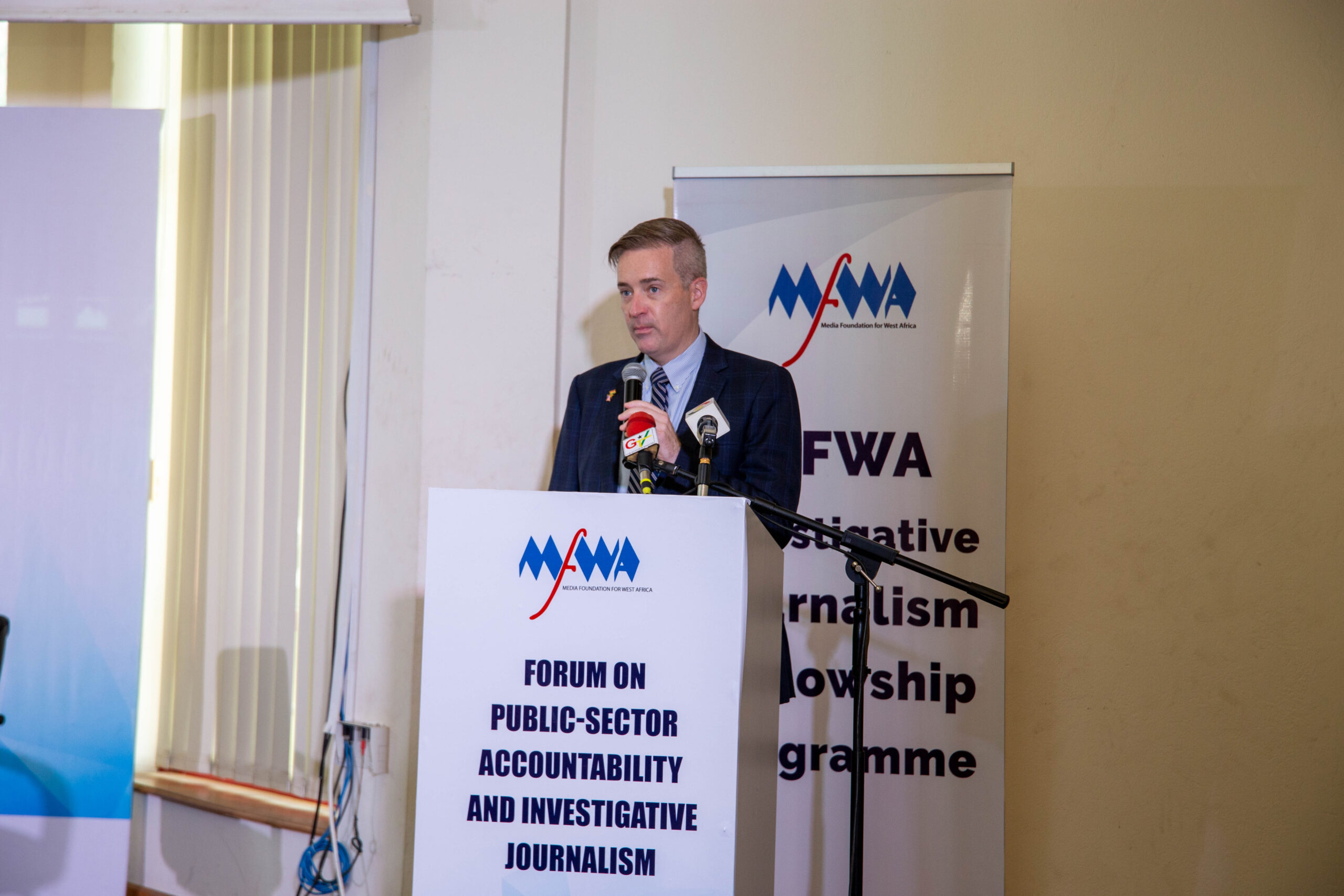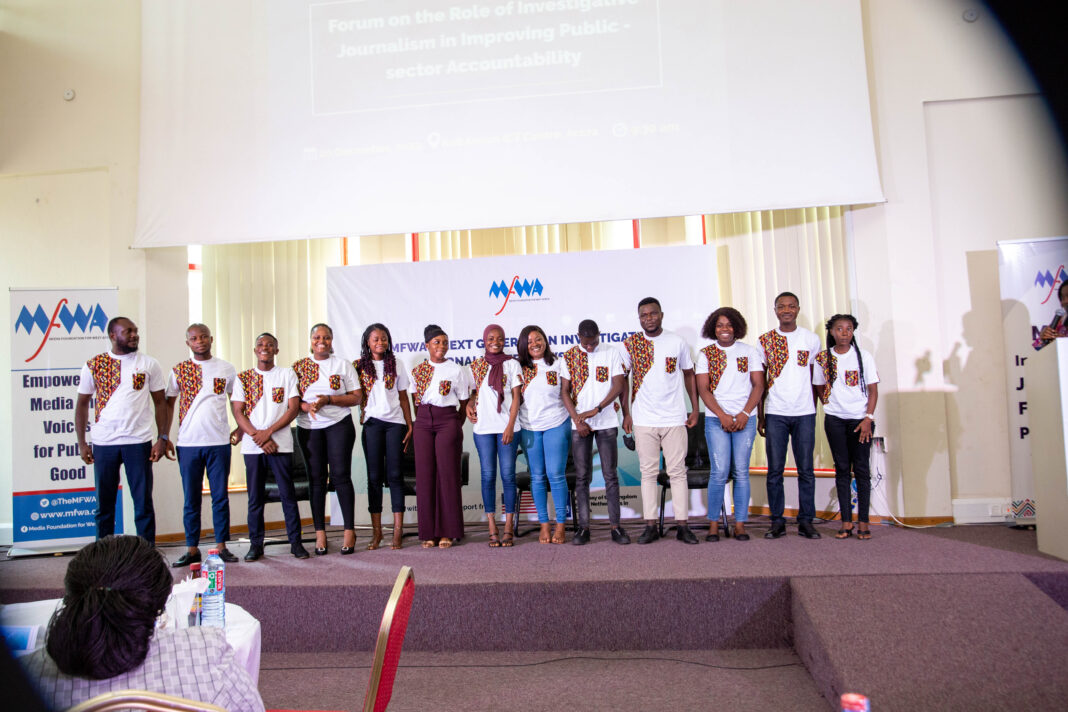Thirteen (13) young journalists who received training in investigative journalism at the Media Foundation for West Africa (MFWA) have been outdoored into the industry of Investigative Journalism.
On December 20, 2022, the second cohort of the MFWA’s Next Generation Investigative Journalism (NGIJ) Fellowship completed the programme after five months of intensive training and mentoring by some of West Africa’s most seasoned investigative journalists.
The young journalists who graduated from the programme are Forgbe Emma Kloh, Victor Jones, Marian Amaria Bangura, Linda Essilfie-Nyame, and Kevin Vincent Nugah. The other journalists are Thelma Dede Amedeku, Philip Teye Agbove, Abdul- Gafaru Salifu Ayamdoo, Sedem Kwasigah, and Norah Aluayo Kwami. The remaining journalists are Diana Amoako Boakyewaa, Edmund Boateng Agyemang, and Victoria Enyonam Adonu. The 13 journalists now join the alumni of investigative journalists who are active in the field after training under the MFWA’s NGIJ Fellowship.
At a ceremony in Accra, the fellows who received certificates, served notice that they are open to new battlefronts in the fight against corruption in their various countries.
“Liberia should watch out for me!” cautioned Forgbe Emma Kloh, a broadcaster with Lux Fm in Liberia.

In his remarks, Sulemana Braimah, Executive Director of the MFWA, emphasized that NGIJ is one of MFWA’s responses to deep-seated corruption, injustice and abuse of power, shabby government accountability, and weak capacity and corruption within the media itself in West Africa.
“We started with a fact-checking initiative called Fact-Check Ghana aimed at helping to combat the pandemic of misinformation and disinformation. Then last year, we launched The Fourth Estate as an independent, non-profit investigative journalism project.
“So far, the two initiatives have become exemplars of quality journalism for journalists and newsrooms in Ghana and beyond, and we hope to do more and even better to inspire and support quality journalism in West Africa.
“While doing all these, we are mindful of the critical need to form the next generation of young talents and help them to acquire the requisite skills, mindset, integrity and passion to do critical, fact-based and solutions-oriented ethical journalism. And this is the rationale behind the NGIJ Fellowship,” said Mr. Braimah.

Prof. Audrey Gadzekpo, former Dean of the School of Communication Studies at the University of Ghana, who chaired the event, expressed disheartenment over what she said was existential crisis that professional journalism is facing. In this crisis, she said, there are onslaughts from social media fake news, while poverty among journalists and unprofessionalism gnaw at the same time. She, however, was hopeful that initiatives like the MFWA’s NGIJ Fellowship provide reason to hope that professional and impactful news-craft still has a future.
NGIJ
The Next Generation Investigative Journalism Fellowship is a new initiative by the MFWA to promote accountability journalism in West Africa through mentorship and training of young promising journalists. It is also aimed at bolstering quality journalism that advances transparency and accountability in governance, and the promotion of human rights.
The comprehensive five-month Fellowship which started in August hosted the fellows in Ghana with mentorship from Fact-Check Ghana and The Fourth Estate, both of which are MFWA’s public interest and accountability journalism projects.
The beneficiaries made up of seven females and six males, from Liberia, Ghana and Sierra Leone, received intensive practical training and support which enabled them to conduct critical, high-quality, fact-based and in-depth reporting towards improving lives and promoting good governance.
The MFWA launched the maiden edition of the NGIJ in 2021 with a cohort of 10 young journalists from Ghana. This second cohort, therefore, joins the ranks of members of the first cohort who are already on the field holding the feet of duty bearers to the fire of accountability through accountable journalism and empowering voices for good.
Outdoored
Mr. Sulemana Braimah said the MFWA will track the progress of the fellows while they practice in real life. MFWA has also offered them the opportunity to publish with both Fact-Check Ghana and The Fourth Estate and be paid for their work while connecting them to emerging opportunities in journalism in Africa and around the world.
For all of these opportunities, the conditionality is that cohort members must be impactful in their post Fellowship journalism work – basically, the MFWA has unleashed them with the promise of reward if they make impact.
Already, while still receiving training at the Fellowship, Victor Jones jolted Sierra Leone with his story which unearthed corruption in his country’s free education programme; while Philip Agbove got some vested interests in the controversial leasing of a salt lagoon in Ada, a town in the Greater Accra Region, to a powerful businessman by the Ghana government. For his critical stories, Philip received threats and attacks from stakeholders but was not deterred as he has been clothed with thick skin to speak truth to power.
On his part, Edmund Boateng Agyemang would not relent in his pursuit for getting information from public offices through the use of the RTI law. Even at the presidency in Ghana where he faced challenges in submission, he insisted and persisted until his request was accepted. Within the Fellowship period, he made a total of 18 requests with four appeals to the Information Commission.
Prof. Gadzekpo cautioned the graduating Fellows to be mindful that investigative journalism is a lonely and dangerous path where they will easily make enemies. But said, even so, proper investigative journalism is worthwhile, rewarding and fulfilling.
Thelma Dede Amedeku reckons with Prof’s caution; regardless of the perils associated with her chosen career, she is poised to leverage on her new interest and skills gained in fact- checking to fight misinformation and disinformation and hopes to be added to the list of the two known female investigative journalists in Ghana.
Funders
Mr. Kevin Brosnahan, Press Attaché at the US Embassy Ghana, who was in attendance, praised the MFWA for the NGIJ Fellowship, saying “it has been a vision that has been worth supporting”.

He reiterated that corruption is a canker that must be fought even though it has been around for centuries because it deprives people and communities of public funds needed to improve lives, thereby holding many societies back. Corruption he said, cripples the rule of law and provides disincentive for investors to invest in countries.
Mr. Brosnahan said the media’s role in fighting corruption is indispensable and that to effectively carry out this role, cutting edge investigative journalism which holds duty bearers accountable and exposes rot is key.
According to him, it is very important therefore to have more journalists conducting investigations, expressing the hope that with the graduation of the 13 fellows, exposing rot in West Africa will no longer be left to the few outstanding investigative journalists such as Manasseh Awuni Azure and Anas Aremeyaw Anas.
He encouraged the fellows to go back to their communities and apply the skills learnt to fight corruption but advised that, they do not sacrifice their lives in the process. “It’s tough to say it but no story is worth your life,” Mr. Brosnahan adviced.
For Victor Jones from Sierra Leone, the journey has just begun. “For a country where investigative journalism is infinitesimally practised, I am going to be the torch kindler and bearer for the same. I’m fortified and embalmed for the journey ahead”.
The maiden edition of the Next Generation Investigative Journalism Fellowship which hosted ten (10) fellows from Ghana was funded by the DW Akademie. This second cohort of the NGIJ Fellowship was funded by the US Embassy in Ghana and the Embassy of the Kingdom of the Netherlands in Ghana.




